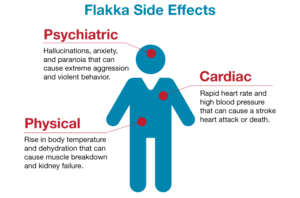Austin Harrouff, a 19-year-old frat boy from Florida State University allegedly killed a middle aged couple and was caught by the police eating the man’s face. Immediately, the incident went viral over the traditional and social media. He was labeled the “Zombie” or “Cannibal” killer. People were shocked at the bizarre violence. Instantly, everyone from law enforcement to the media offered the same explanation: Flakka.

